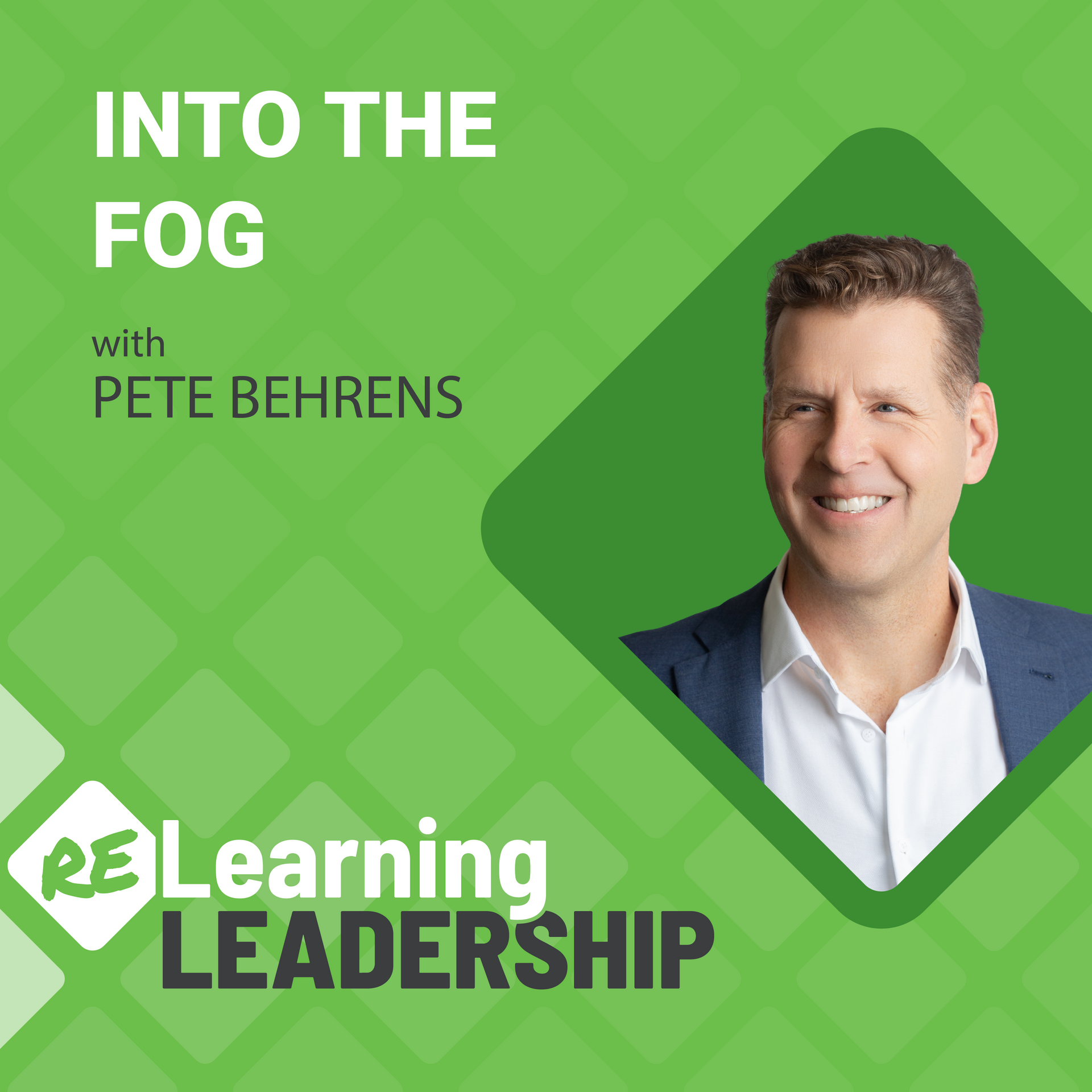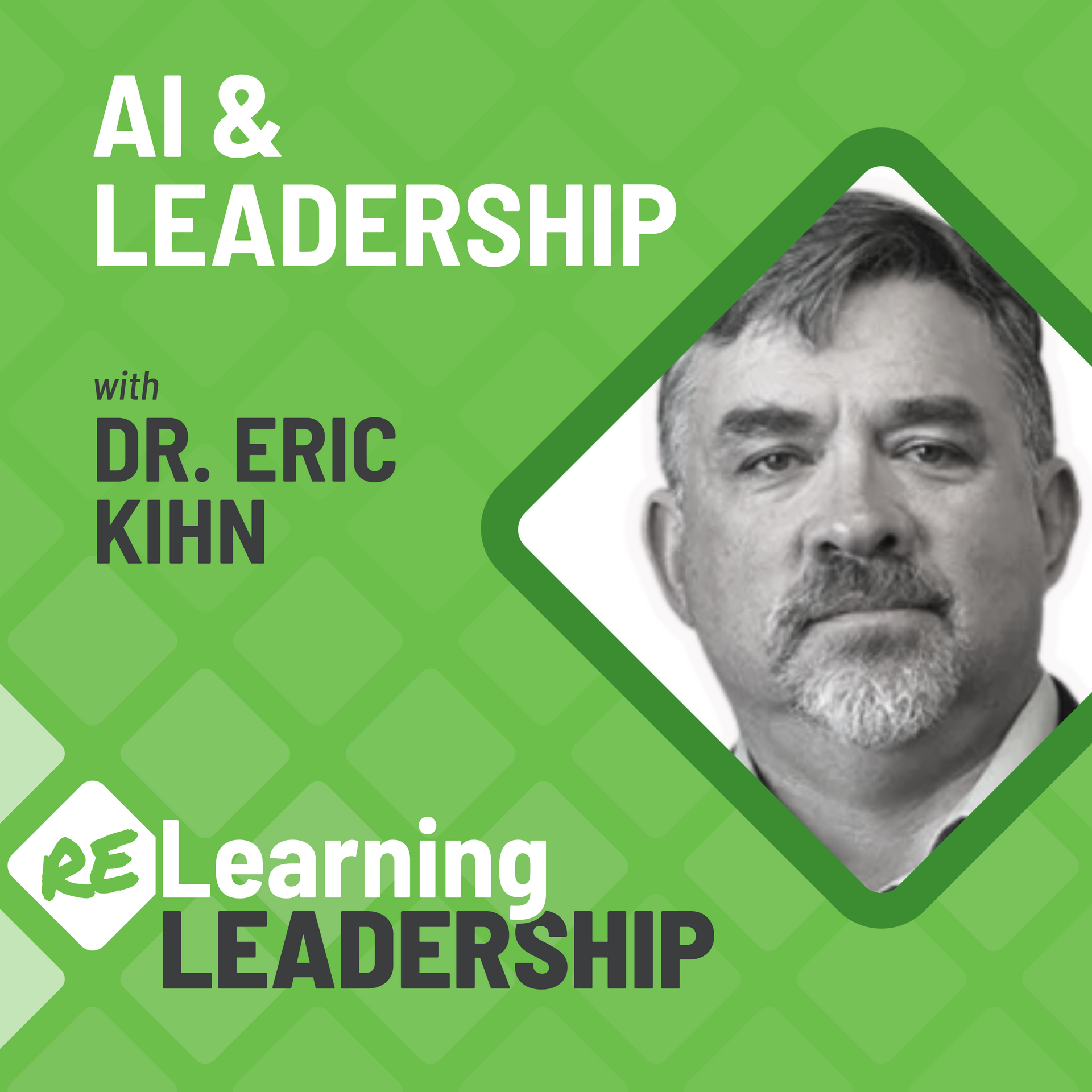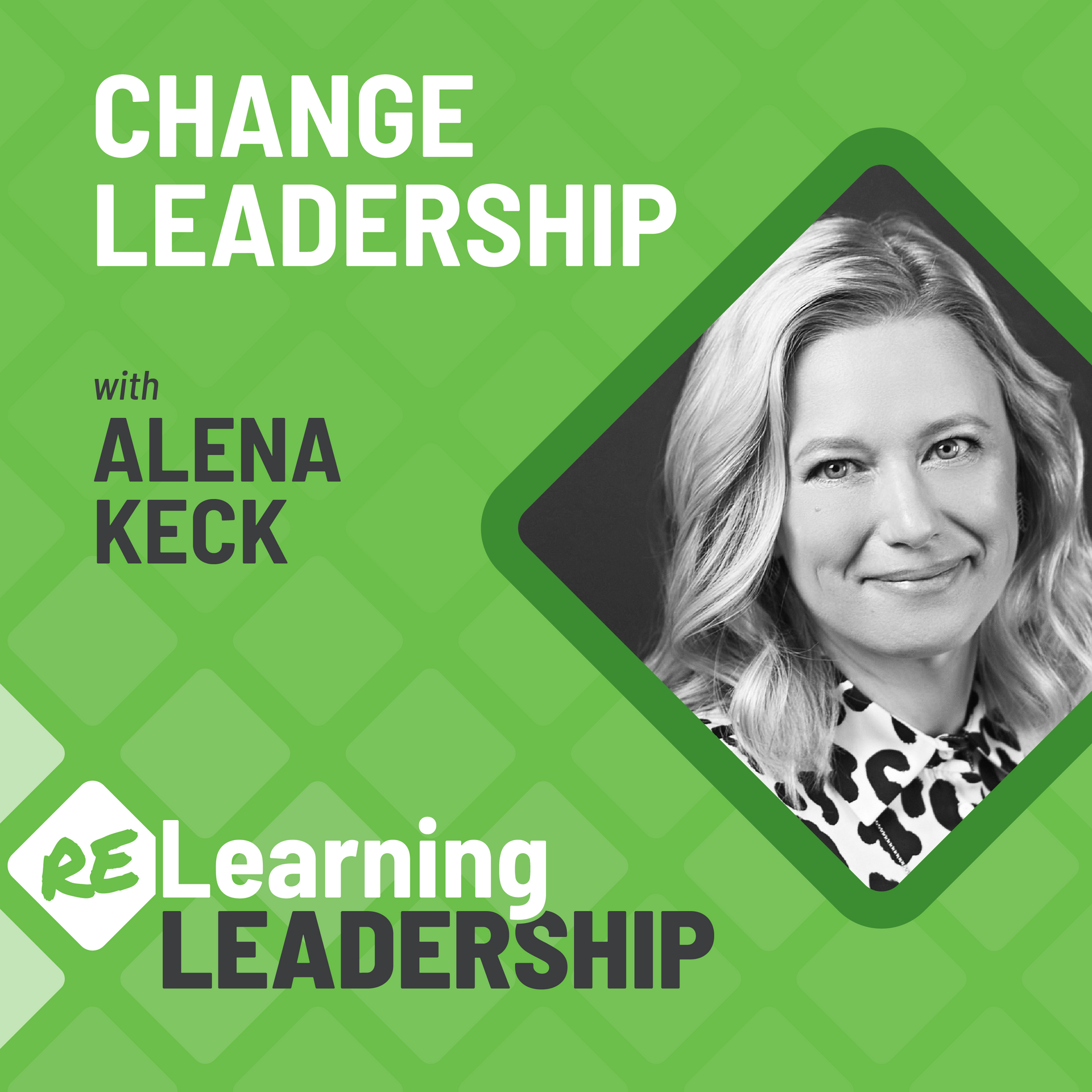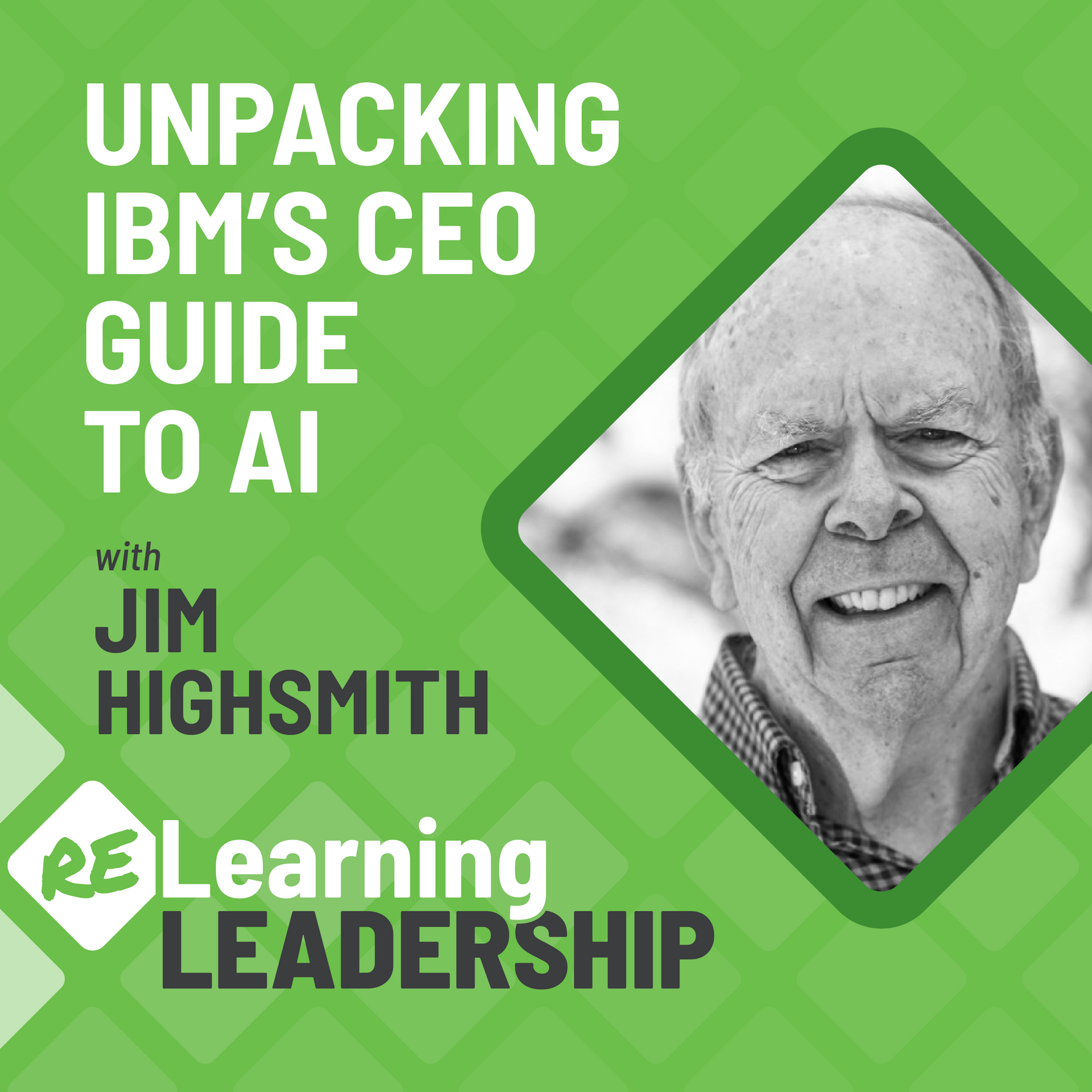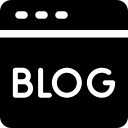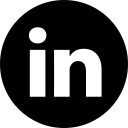48: Gen Z in the Workplace
How Will Gen Z Change the Workplace?
In this episode of (Re)Learning Leadership, Pete delves into the topic of Gen Z entering the workforce.
He is joined by Tammy Dowley-Blackman, a culture and leadership expert who shares her insights and expertise on this unique generation’s strengths and characteristics, how leaders can help them grow, as well as the challenges that come with five generations inhabiting a workforce.
Tammy Dowley-Blackman
Through her consulting, workshops, individual coaching, and speaking, Tammy Dowley-Blackman has helped thousands to create high-performing teams, build more equitable organizational cultures, and become more engaged leaders. She is the founder of Tammy Dowley-Blackman Group, LLC, a suite of brands, including a management consulting firm specializing in organizational and leadership development.
Tammy is also the creator of the Looking Forward Lab, a multi-platform leadership development company focused on helping Generation Z develop the leadership skills required to operate in an increasingly complex global world. Learn more at tammydb.com.
Connect with Tammy
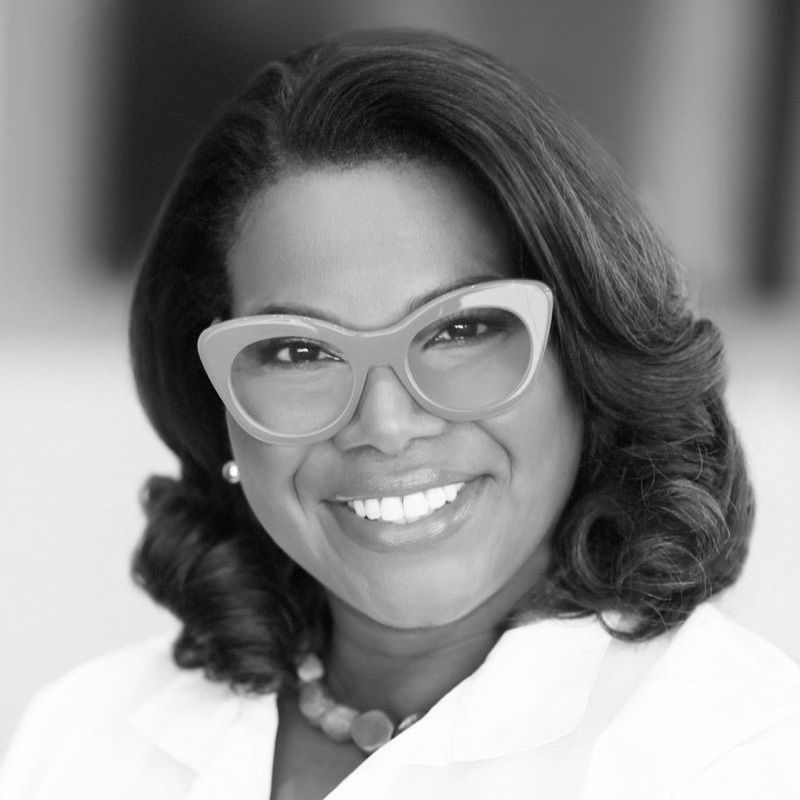
Relearning from this episode…
Embrace Diversity and Values
Gen Z is a diverse and values-driven generation. Employers should not only acknowledge but also align with their values related to diversity, equity, inclusion, accessibility, and belonging. Fostering a workplace that supports and shares these values is essential for attracting and retaining Gen Z talent.
Create Space for Collaboration
Building a bridge between generations in the workplace requires humility and a willingness to learn from one another. Leaders and employees should be open to collaboration, active listening, and respecting the unique perspectives and skills that each generation, including Gen Z, brings to the table. Creating a space for open dialogue and mutual understanding can lead to more productive and inclusive work environments.
Nurture Leadership in Everyone
By investing in leadership development for all employees, organizations can unlock the potential of their workforce and promote a culture of continuous learning and growth.
Episode Transcript
How can leaders welcome Gen Z to the workforce?
Welcome to another episode of (Re)Learning Leadership, where we explore a specific leadership challenge and break it down to help improve your leadership, your organization, and, just possibly, your personal life.
I'm Pete Behrens, and today I have the pleasure of joining Tammy Dowley-Blackman, a culture and leadership expert, speaking on the topic of Gen Z. Welcome to the show, Tammy!
Tammy Dowley-Blackman:
Well, thank you, Pete! I appreciate the opportunity to be here with you.
Pete Behrens:
Well, it's awesome to have you. And maybe I could just start with, where does your passion for Gen Z come from?
Tammy Dowley-Blackman:
Well, I have a Gen Z-er myself. I'm a mom of a daughter who is in college, and so I got to see it firsthand. And I really became fascinated with Gen Z when my daughter was about five years old. And thinking about—they just felt like they were wired differently, that they were just going to be so much more interesting. And really just started watching and carefully thinking about what it meant, not only to be a parent to a Gen Z-er, but what was it going to mean to educate Gen Z-ers? What was it going to mean to ultimately help Gen Z-ers enter the workforce? We know that those who are on the older end of Gen Z have just entered the workforce. So, what felt like forever—it was going to be, you know, a long time—is now here. But I was just fascinated by them and thought they were going to just be incredibly interesting.
Pete Behrens:
Hm. Well, I think we have something in common there; I've got two boys as well. But I think they live on that Millennial/Gen Z border. One born in 1996, and one in ‘97. Is that—do I have that right, in terms of when Gen Z was kind of started?
Tammy Dowley-Blackman:
Yeah. They’re Gen Z-ers; they're not Millennials. So, Gen Z is roughly 1995 to 2012. And so, we have Gen Z-ers—they are on the older end. My daughter falls in just a few years later. But, yeah, they are considered Gen Z.
Pete Behrens:
Yeah. And they've definitely entered the workforce. And so, it's not a preparation at this point. I mean, it's a reality. They're here. So, you know, we've got at least—what?—three other generations in that mix. We've got the Millennials; we got the Gen X-ers; we've got the Boomers, who are probably fading in that workplace. What do you think brings—what is unique about Gen Z?
Tammy Dowley-Blackman:
So, we've got a, you know—some workplaces, five generations in the workplace. But at least four. And there are a couple things that make Gen Z unique. One is that they're the first generation in 50 years, in five decades, to enter the workforce with little to no work experience. And that is not of their own design. That truly is actually us, as their parents—our design. We wanted them to have so much more. We wanted them to be able to follow all of their dreams and to try new things that maybe we didn't get a chance to try. And so, some of that has meant preparing them differently. So, where you or I may have, you know, done a summer job, or we worked at the local bodega, delivered newspapers, mowed lawns, or ran errands for elderly community members. It certainly isn't that Gen Z has thought that they couldn't or shouldn't do those things. They literally just don't have the time because they're so programmed. And so, that has meant that they are studying for the college entrance exams. That means that they are playing two or three sports. That means that they might be playing an instrument very seriously or dancing very seriously or in the theater. But these are not just hobbies, as they may have been for us. But, really, these passions are really invested in a very, very different way, and they literally have just not had the time to gain the experience to enter the workforce. So that's one thing.
The other is that they're the most diverse and the most populous generation that we've ever seen. And diverse in—not only do they understand diversity, equity, inclusion, accessibility, belonging. They care about those things, and they have an expectation that others will care about those things and center them. Not just those values personally, but professionally as well. They're asking really interesting and amazing questions of their employers. So, as much as they're being interviewed for a job, they are interviewing their employers, and they are saying, “What are your values, and do those values match my values?” And making concrete decisions about their adult lives and about their entering the workforce based on those values.
They are some of the most incredibly thoughtful, in terms of generation. Again, back to this caring about diversity, equity, inclusion, accessibility, of belonging, but they care about important issues. They're asking about racial and social justice. They're asking about climate change. They are asking about homelessness. They are asking about the income gap. They are asking these important questions and they want policies. They want there to be robust conversation. They want there to be change. And so, these things are really important to them.
And this does not mean that other generations did not care. We know—we've seen generations be active. There's just a very different way in which this generation has gotten to do it, or they've taken on some of those things earlier. But also—they would tell you—technology is also a big part of that. The most technologically-advanced, most technologically-savvy generation. Those are all things that make them very unique.
Pete Behrens:
So—wow!—you really covered a lot of terrain with that response. And I want to, kind of, maybe, dive into maybe a few of those areas. And I might start with the last one first, which is really about that social kind of connectedness. And I do see that in my children—right?—that it's really, kind of, the connection of work to outside work, right? Social issues and justice issues and racial issues. And just—climate issues. So, as a leader, and starting to think about the Gen Z workforce that's coming in with these issues, I can imagine that's difficult because of the focus you're trying to create in just the workplace itself. And then to bring in all this other stuff feels, like, a bit overwhelming. Is there some advice or some guidance you have when you start to think about how to incorporate work world with life world? And in a way that engages Gen Z effectively.
Tammy Dowley-Blackman:
We're finding that many of the companies that my company partners with, whether they're corporate, government, non-profit, or philanthropic—many of the institutions, companies, organizations, agencies— they care deeply about these issues as well. And so, some are not there yet and are having to wait until Gen Z and others bring it to their attention. But they're responsive. Others are ahead of it and saying, “Let's ask these questions, and let's have our full team be supportive!” And really helping us to think through what our response should be. Everything from, ”What's the statement we should put out when something terrible happens?” Sadly, there's more and more that is happening. And because we have social media that—we can actually know instantaneously what's happening around the world. And so, we've got some of those organizations, corporations, institutions saying, “What's going to be our stance on these issues?” And they really do want there to be a lot of different people at the table helping them to craft those messages.
Others, it's “What are we doing to learn, own, so that we can be a real force for good?” Not just taking a stance but actually, then, trying to be a part of deeper conversations, more important conversations about change in policy or ways in which we might assist others in actually trying to move towards some very significant substantive change. So, that's everything from, “What is our own diversity, equity, inclusion, accessibility policies?” It's “What is our own policy towards carbon footprint?” Or “What is our own policy around how we're improving our hiring so that we truly have equity in our hiring?” Or “What's our—the way in which we're thinking about how we hire?” And we're doing that in a way that's fair, that we're not setting it up so only certain people from certain schools or certain experiences feel like—that this is going to be a welcoming environment for them.
Pete Behrens:
Yeah, yeah. Well, I—great examples. And, you know, what I'm hearing from that is two things. One is—at a senior level, at an HR level, at a corporate level, certainly policy and how we form policy and guide that through the organization—is critical. I would argue that—or maybe I would position that—a lot of the leaders listening to this podcast are somewhere in the middle of that system, right? They're middle managers; they're early managers, right? They live under these policies that may be good or bad or right or wrong or, you know, perceived in various different ways. Is there something they could also do, then, if they're not ones creating the policy, but yet they're the ones managing the Gen Z-ers who have these critical interests? How do they navigate in between that? What is it they can do that—maybe beyond just creating new policy, which they can't—to create a space for this?
Tammy Dowley-Blackman:
So, we're talking to them about just that. What does it look like to create space, and what does it look like to respectfully create that space? So, that means actually listening. That means active listening, and it means actually, then, having to be open to—that this isn't about right or wrong, but just open to a different way of approaching what's happening, again, in the workforce. And I think that, for Gen Z, they're used to collaborating, for example. And so, the idea that you would ask them around the table and “Let's brainstorm this!”—they are ready-made for this and are excited to be participatory. I think that what we're seeing is—for many of our folks who are sitting there in managerial positions, to your point, they might sit in the middle. They don't create policy; they don't manage the company in its entirety. They're really trying to think about, also, “What do I, as this manager, need to do differently that could be more supportive?” And so, even if they can't create much larger policy, there are some things that are on the ground that they can be very participatory in, and they’re asking questions and making a change.
I'll give you a really good example—is that one of the organizations we were working with—the managers realized that they actually could change the performance review process, and they could change that process. And this wasn't just about Gen Z and wanting to make it better for Gen Z. This was about, “How do we actually make a process that could be better for everyone, that could really see people for the value they bring?” Not just, “Did they get this widget, make this number of widgets?” Or “Did they actually bring this number of dollars to the bottom line?” But actually a performance review that would value and would show value and would give everyone an opportunity to be seen.
Another one is where we've seen—and this came from the board of directors. And not just from the team members from the staff, but the board of directors really saying, “We would like to do more with the staff around learning.” And so, with one group we worked with out of Philadelphia, the board of directors said, “We would love to do, two or three times a year, training, learning opportunities, where we would do it alongside the staff instead of it being separate, so that we would actually be in this together, working together, asking questions, and teamed up.” So, these are the kinds of things that people are starting to embrace, that, no, it does not mean that it's some giant policy or that it has bells and whistles. Everything doesn't have to be that way. And some things are analog, very simple and uncomplicated—but can make a world of difference.
Pete Behrens:
Well, I love that message. I think, you know, we talk about self-awareness, situational adaptiveness, right? How do you manage to the people in the room, the power in the room, being aware and responsive in real time, right? All those things come critically when you're talking about that, just that team environment. And so, yes, it's, at a corporate level, about the policy. But at the individual level, it's about the human. It's about the—what's going on in the moment. And I love how you stated that. So, thank you for helping them.
Now, this is a two-way street. I kind of want to, maybe, think about the other side of this, the, kind of—the Gen Z side coming into the workplace. I imagine you probably also have advice on that side of it. Like, what are you helping them to connect to, maybe, a non-Gen Z world? Where they can come in without a sense of entitlement, maybe. Or that sense that others might feel like they are entitled. How do you coach them into this world?
Tammy Dowley-Blackman:
Yeah, and it's been important to do it and to—just what you said. It's a two-way street, and we talk about that. So, with managers, those who are hiring them, those who are training and educating Gen Z, we say to them, “You really want to go into this with humility.” And say the same thing to Gen Z. “You want to go into this with humility. Everyone has something to bring to this table. Everyone has something to learn. None of us are perfect. None of us know everything.” And so, for those who are managing, hiring those who are educating, training, we really have had to get some of them to step away from, “Well, we did it this way.” Or “My experience was—”. Because those experiences—not all of which were positive. And we said, you know, those were not necessarily good for you, when we don't want to repeat them in this generation. And we don't have to. We have other kinds of skills.
In the same way we've had to say to Gen Z—to think about how you show up. And that there are people who've been here for many years prior to you. And that doesn't make them outdated. [Laughs] That doesn't make them lack knowledge, you know? To come into this and say, “What can I learn with you and from you?” And so, it really is that, sort of, that nice space in the middle of getting them to come and to be able to meet each other. And to be able to bring something, but also be open to learning and taking something away.
What I've also had to say to managers, again, those who are hiring, educating, training—is that Gen Z is actually more nervous than you may think they are. Yes, they're super confident; they're super smart, but sometimes what may come off as entitlement is really, “I just want to show off that I know something. I really want to be in this space with you, and I really want to do a great job.”
And because Gen Z is used to being so collaborative, they're used to actually getting a lot of feedback along the way. And some of our managers we work with are not so good at that feedback. It's just not what they've done or know to do. And so, it's a little harder. And so, I think sometimes they're misinterpreting what might feel like—is that they're being entitled, which is really nervousness. And “I just want to do well!” I also say to Gen Z, don't misinterpret what you might be hearing from your manager or the person who's hired you. It's not that they're assuming that they know everything. They might be asking a question they truly don't have the language for because you speak to it differently. But it's not because they, in some way, are trying to disrespect you, or they don't want to be knowledgeable. So it's, again, finding a way to meet each other in the middle.
Pete Behrens:
Well, it's nice to know that—you know, I'm aging on the edge of the beginning of Gen X-er. And I’m maybe a dinosaur, but I'm not extinct yet! [Laughs]
Tammy Dowley-Blackman:
No one is!
Pete Behrens:
You know, I often get reminded from my own children, like, “Oh, Dad, that was pretty biased.” Or “Hey, Dad, that was a pretty misogynistic comment!” Or, you know, just thinking about things like titles and gender pronouns and the awareness you need to just be sensitive. And we weren't brought up in that era and with those trainings. And so, yes, I love the humility ability—right?—that I think can help everybody work through this a little bit better—is really key advice.
Tammy Dowley-Blackman:
It is. It is.
Pete Behrens:
So, you mentioned earlier a key thing is they're not coming to the workplace with experience, with job experience, with work experience, or corporate experience. Which means what you're saying is—they've been—their experience growing up is a lot more, probably, diverse in terms of—you mentioned sports and music and extracurricular school activities and things like that. Versus, “I got an internship!” Or “I'm working as a fry cook for McDonald's,” or whatever. What do you see that that's doing, I guess, in terms of when they do finally enter there? And, I imagine, there's probably good and challenges from that.
Tammy Dowley-Blackman:
There are. And so, we're also trying to help them to not be so self-conscious about what they don't have and to jump right in and to learn. Because, again, this is not about—they weren't interested. They don't know how. This was something that got set up that they didn't have any discussion and they weren't a part of. And it's just what they grew into, which was this—I keep calling it this highly choreographed life. And so, they’ve responded to what was put in front of them, to play three sports or play multiple instruments or to be on the travel soccer team and so forth. And have become really good at what they do.
It's almost like that book by Malcolm Gladwell, in Outliers—and 10,000 hours to become really good at something. And many Gen Z-ers are actually that, whereas for some of us, it wasn't even possible, nothing we could have even thought of. Many of them are, because they've been able to delve very deeply into things. I think about my own daughter, who liked trying lots of different things. And so, where she may not have the 10,000 hours as a deep dive into one thing, she is—and in this way, where she is—her range of interests, her range of understanding, her range of experiences—she counts herself as very lucky because she has played multiple sports and tried different instruments and did different art classes and all of these things that she had to be edibly thankful.
But all that to say that those are things that they didn't ask for. They didn't get—they didn't ask for it to be designed that way, but they're trying to figure out how to respond. And they're open to getting those experiences, and that's why we're trying to front, you know, load some of these experiences that Gen Z-ers may not have gotten as they're entering the workforce. That's the work we do with companies and with higher education institutions—is saying, “Maybe they didn't get that, but how do we front-load it now?” Executive coaching. Helping them to really think about their—the design of their career journey. Asking different questions of them that will, you know, really spark the opportunity for them to build something that they didn't get a chance to dabble in and just organically come to. But now we have to help, you know, accelerate it for them as they're about to—in their college careers, and they're heading into the workforce.
Pete Behrens:
Well, I think it—you know, it's a great reminder—right?—that behind every employee is a human, right? And all of us humans have passions; all of us humans have experiences, regardless of, you know, work. Playing in a band is work. Playing on a sports team is work, right? I think some of our best leadership examples come from sports and military and things where it's, like, non-corporate environments. And so, you know, one of the things that I think about when we think about how leaders can engage this is—and even for Gen Z coming to the workplace. Can you map—right?—your experience to, like, “Okay, in that band, who showed leadership? How did they show leadership?” Or “In that sports team, who showed leadership? How did they show leadership?” Because the way we look at this—like, everybody leads. Everybody influences in different ways. And I think when you can start to put those glasses on or that lens on, you start to see people for what they're bringing—right?—regardless of that path they took to get there. And I think you're really highlighting that, and I love, love to hear that.
Tammy Dowley-Blackman:
Yeah. And the way we talk about this work in my company is—that we're trying to galvanize one million leaders. And we know that leadership is not what you're born with. This is really nurtured, and everyone can be a leader. Everyone is a leader. And so, that idea of being able to galvanize one million leaders—that doesn't sound impossible. That's everyday folks. That's folks, whether they've went to four-year college or no college. That's whether you live in a city or live in a rural place. That's whether you are African-American or you're LGBTQ or you are Latino, white or—it doesn't matter. Everyone's a leader, and everyone has an opportunity to exhibit that leadership. And that's really a core value for my company—is that leaders are not—this isn't about that leaders are born. This is about that leaders are nurtured, and everyone has something to bring to the table.
And that's, again, why we feel like it's so important—why I feel like it's so important in working with those that we work with, in, again, corporate, government, non-profit, and philanthropic—to put leadership front and center earlier in the careers. Instead of waiting until people are 15, 20 years in. As—somehow, that's the reward, is—now we'll invest in you. Let's invest in you on the front end. So, we all get more out of it, and we can do more. That's the core belief.
Pete Behrens:
Yeah, yeah. And I think, you know, just for the leaders in those current leadership positions, creating space—as we started this with—creating an opportunity where other forms of leadership can shine. Other forms of influence, other forms of stepping forward, you know, are able—right?—regardless of role or title. I think that's so important here. Well, Tammy, I appreciate your time today. Any final thoughts or words for us as we close this?
Tammy Dowley-Blackman:
Well, thank you. It's always a pleasure to be in conversation about these important topics. And I just think in all the ways that we all can support Gen Z. We are all made better. They are going to do incredible things. They are incredible people, but we are all made better and will all benefit by the innovation they bring, by their care and concern and the way in which they like to collaborate. And so, I'm excited that I get to do this work through my companies and that we get to investigate, explore what they're doing next, what they're interested in. So, really appreciate what you do in bringing these conversations forward. So, thank you, Pete.
Pete Behrens:
Well, thank you! I appreciate hearing your voice. Thank you.
Explore:
Related Episodes
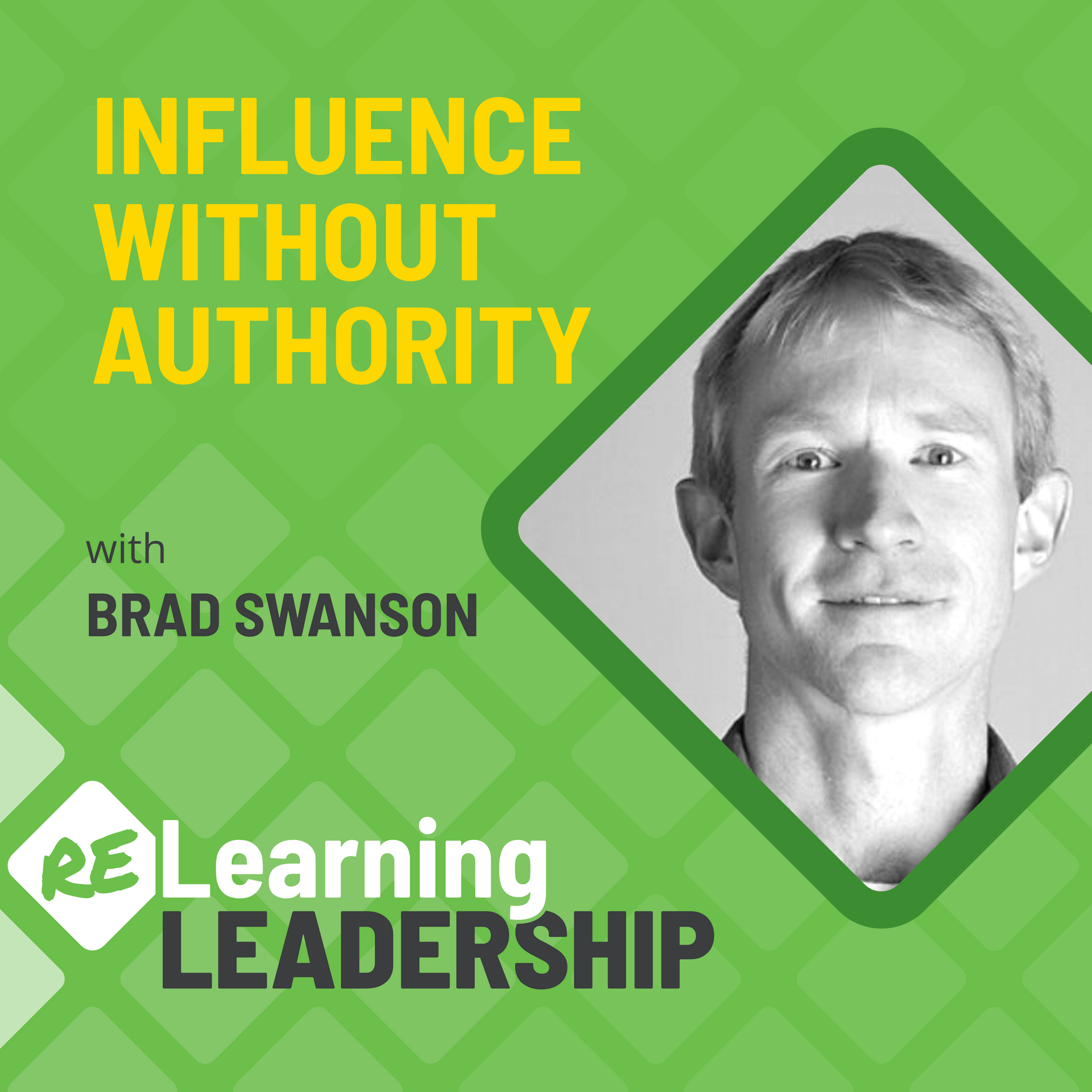
43: Influence Without Authority
Brad Swanson, Agile Leadership Journey Guide and organizational systems coach shares his insights on how leaders can better impact change through influence “without pushing the command button”.
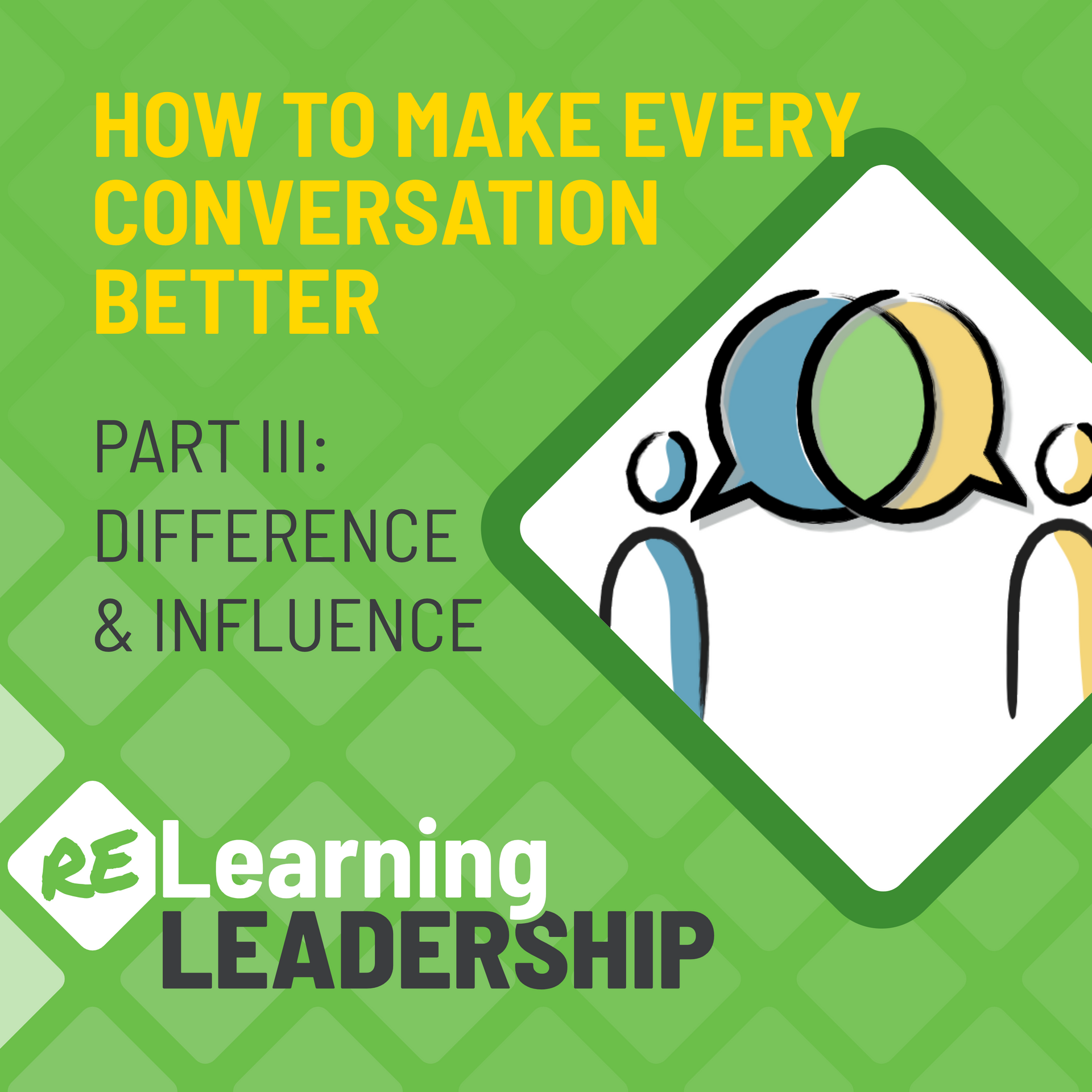
31: How to Make Every Conversation Better Part III: Difference and Influence
Pete shares insights from two of his favorite mentors in this episode to help us better understand why differences are so challenging to overcome in crucial conversations and how an unintuitive approach to differences can shift conflict to alignment.
Recent Episodes

